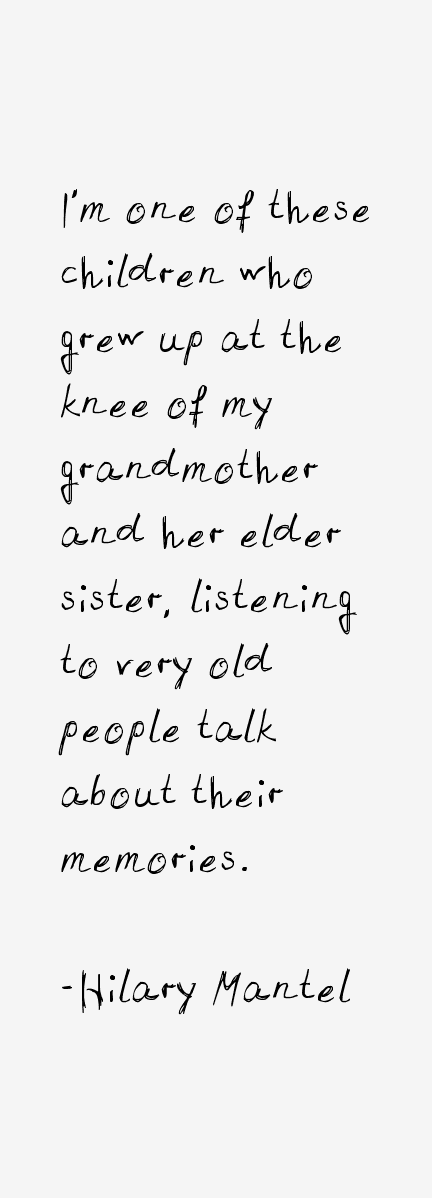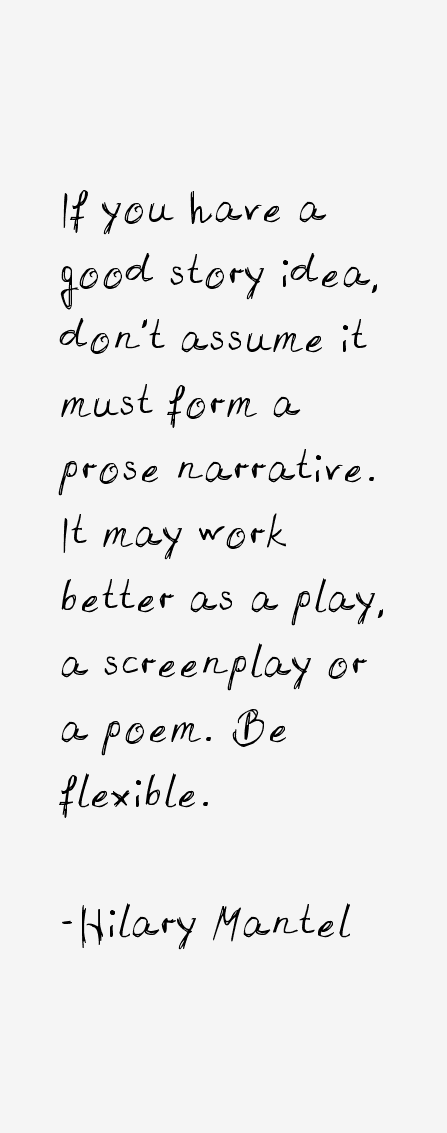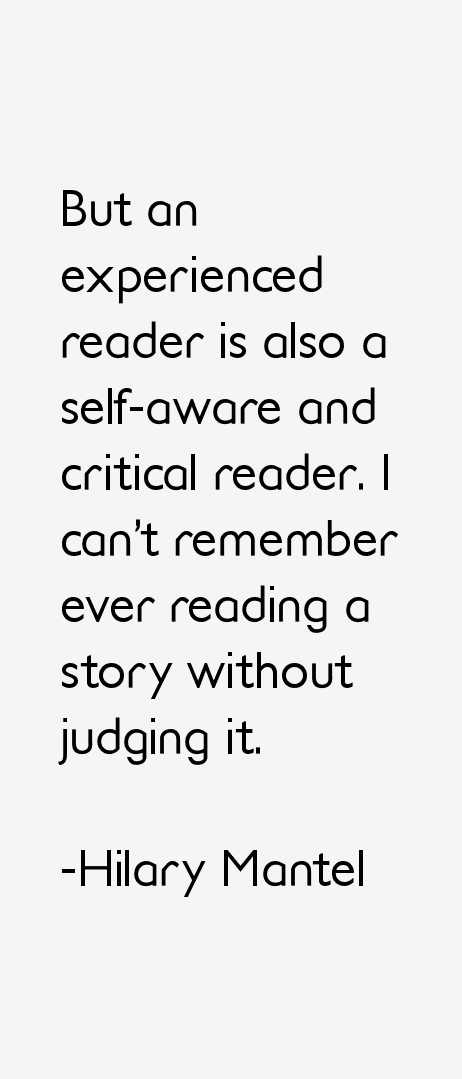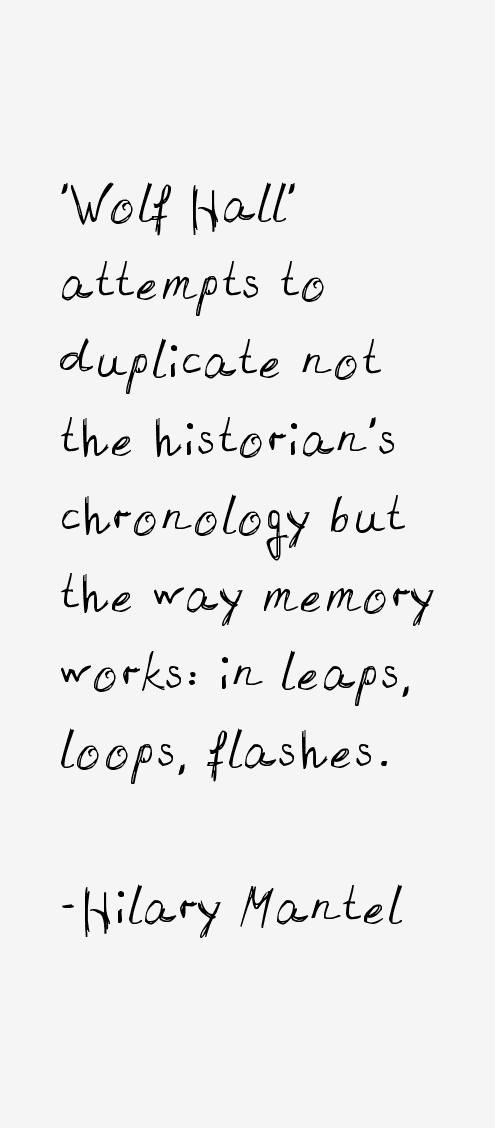Hilary Mantel Quotes & Sayings
76 most famous Hilary Mantel quotes and sayings (writer). These are the first 10 quotes we have.

“Once you're labeled as mentally ill, and that's in your medical notes, then anything you say can be discounted as an artefact of your mental illness.”

“Imagination only comes when you privilege the subconscious, when you make delay and procrastination work for you.”
“I once stole a book. It was really just the once, and at the time I called it borrowing. It was 1970, and the book, I could see by its lack of date stamps, had been lying unappreciated on the shelves of my convent school library since its publication in 1945.”

“I'm one of these children who grew up at the knee of my grandmother and her elder sister, listening to very old people talk about their memories.”
“History offers us vicarious experience. It allows the youngest student to possess the ground equally with his elders; without a knowledge of history to give him a context for present events, he is at the mercy of every social misdiagnosis handed to him.”

“If you have a good story idea, don't assume it must form a prose narrative. It may work better as a play, a screenplay or a poem. Be flexible.”

“What really disconcerts commentators, I suspect, is that when they read historical fiction, they feel their own lack of education may be exposed; they panic, because they don't know which bits are true.”

“But an experienced reader is also a self-aware and critical reader. I can't remember ever reading a story without judging it.”

“'Wolf Hall' attempts to duplicate not the historian's chronology but the way memory works: in leaps, loops, flashes.”
“For myself, the only way I know how to make a book is to construct it like a collage: a bit of dialogue here, a scrap of narrative, an isolated description of a common object, an elaborate running metaphor which threads between the sequences and holds different narrative lines together.”
Hilary Mantel Quotes Rating
No Ratings Yet
Leave A Comment
























